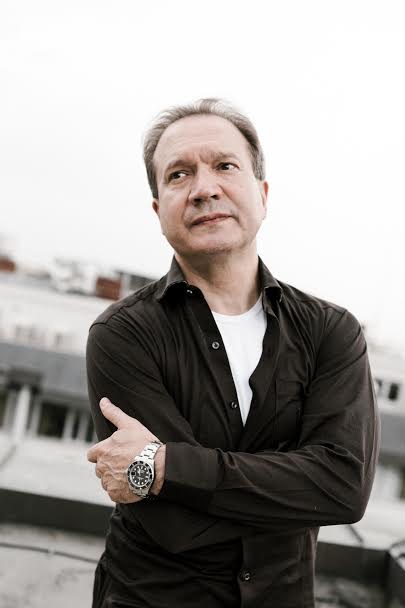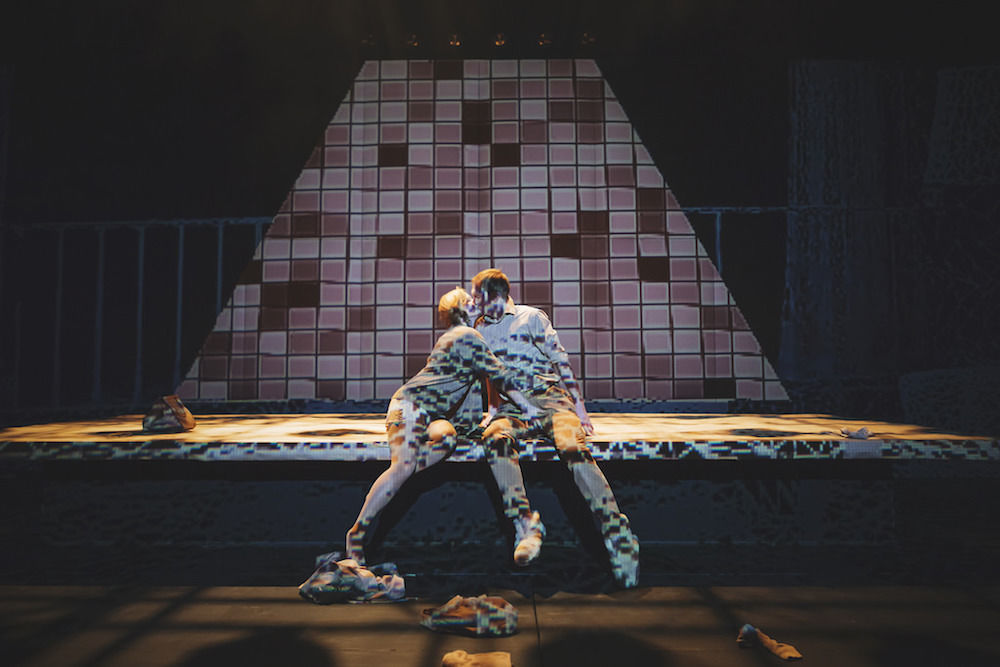Interview: Viktor Ryzhakov Talks THE SUN LINE

The Sun Line visited Sadler's Wells earlier this month. Russian stage director and actor Viktor Ryzhakov discusses the show, as well as the universality of theatre, the relationship between art and politics, and how he's come to understand the world.
I loved this show when I first saw it, and I recommended it to all my friends; they asked me what it was about, and in English and in Russian, I found it very difficult to answer them. What is it about?
It's a story about me, and a story about our world. I could say that it is a story about a man and a woman, about black and white, about war and peace, about these things which, without one, the other does not exist.
In this world, there is something else which is beyond us. It is also about something else inside us, a kind of special love. Tolstoy wrote about this: you can love beer, a woman, cigarettes, but you love something else in addition to all this. Something higher. Everyone is different, everyone is special.
You talk about 'our world', but I wonder - whose world? How universal are these themes, really?
The human world. When I go to another country to mount a play, I try to feel a part of that city - I go to parties, I participate in holidays, I celebrate Christmas there. When we're rehearsing a show, I'm like a spy in the community, trying to see what it's about. And I've found that there are no problems that are, say, exclusively German or Italian. Yes, there are socio-political issues, but the theatre is the only place where the story is about the person.
My goal is to find that moment when you forget those distinctions and focus on the person. The kind of theatre that I like, that I believe in, is like the theatre of Shakespeare: "All the world's a stage". When we act, we break through borders.
I probably shouldn't publish that you act like a spy - that could cause some problems.
Then let's say I'm like a 'diversant'.

You're interested in theatre that is universal, but people often say that the arts are inherently political - the personal is political, that kind of thing.
That's a difficult question, that one. Politics is a means of allowing us to manage things. It's like a childhood game - I'm in this party, now I'm in this one. But at the centre of it all is power. Dominance. Everyone wants to dominate.
The one game that everyone plays is politics, but it's like one of those childhood games that no one can win. It's a trick. But we all play it anyway, even though we know it's all a hoax. It's a paradox.
We can identify by our home, by our neighbourhood, by our city, our country, our world... Politics is a way of identifying with the masses, with a crowd. We can understand this through political science, or through art.
Take Hamlet - there's power, politics, everything. And a theatre troupe. That's why Hamlet is the central work of theatre in the world - it goes beyond the political.
Read our review of The Sun Line
Photo credit: Roman Kanashchuk
Comments

Videos
